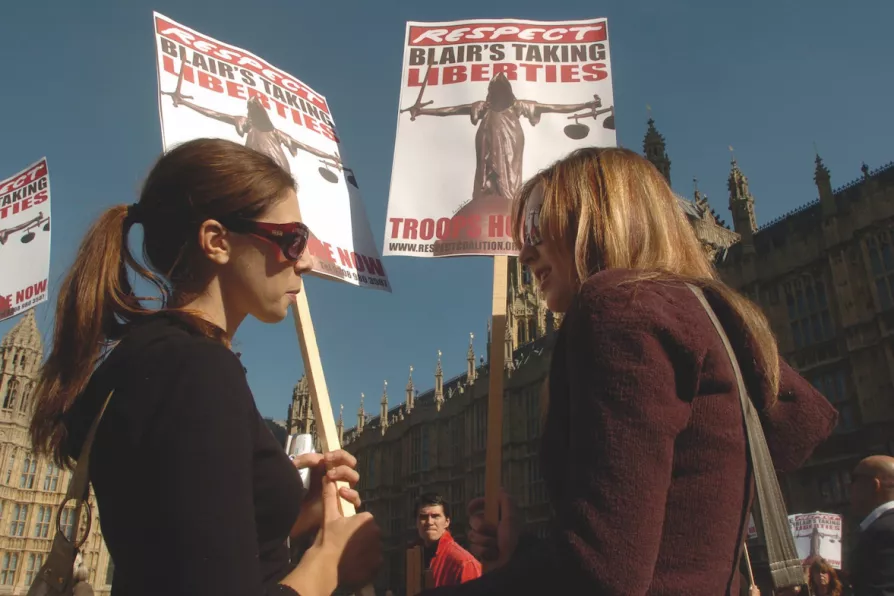Labour prospects in May elections may be irrevocably damaged by Birmingham Council’s costly refusal to settle the year-long dispute, warns STEVE WRIGHT

 VOTING AGAINST WAR: Women on an anti-war protest in 2005 hold placards from the Respect party which managed to beat Labour and win an MP, George Galloway, in Bethnal Green and Bow that year
VOTING AGAINST WAR: Women on an anti-war protest in 2005 hold placards from the Respect party which managed to beat Labour and win an MP, George Galloway, in Bethnal Green and Bow that year
UNTIL recently, current events were held to pass into history at around the 30-year mark, which was when official government papers were released of that period.
In more recent times many documents have been opened up after 20 years, meaning that the early 2000s period of British history has now made its initial entry to the historical record.
In the 2001 general election, nearly a repeat of the result of 1997, Labour had a majority of 167. At the next election in 2005, Labour’s majority dropped to 66. Tony Blair was replaced by Gordon Brown as PM in 2006.

While Hardie, MacDonald and Wilson faced down war pressure from their own Establishment, today’s leadership appears to have forgotten that opposing imperial adventures has historically defined Labour’s moral authority, writes KEITH FLETT

Research shows Farage mainly gets rebel voters from the Tory base and Labour loses voters to the Greens and Lib Dems — but this doesn’t mean the danger from the right isn’t real, explains historian KEITH FLETT

KEITH FLETT traces how the ‘world’s most successful political party’ has imploded since Thatcher’s fall, from nine leaders in 30 years to losing all 16 English councils, with Reform UK symbolically capturing Peel’s birthplace, Tamworth — but the beast is not dead yet











